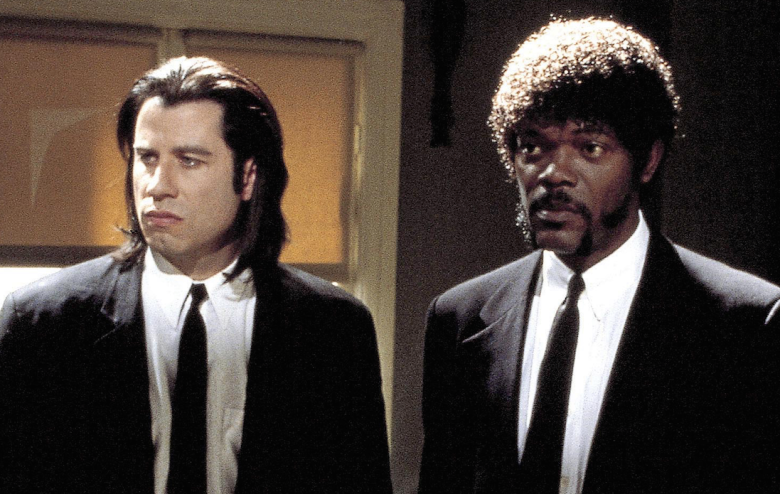
What is the primary quality of a beloved movie? For most of us, beloved films are timeless classics that we can happily show to our children and even grandchildren.
Sometimes, though, watching one of your favorite movies of yesteryear can be shocking when you encounter surprising misogyny, homophobia, and racism. Sure, these movies are all artifacts of the time they were made. But some of the most successful films in history will make you think twice before showing them to your kids due to their problematic content.
What movies are we talking about? Here are a few hit films that have problematic scenes or characters that you may not have noticed before. Needless to say, spoilers abound.
Love Actually (2003)
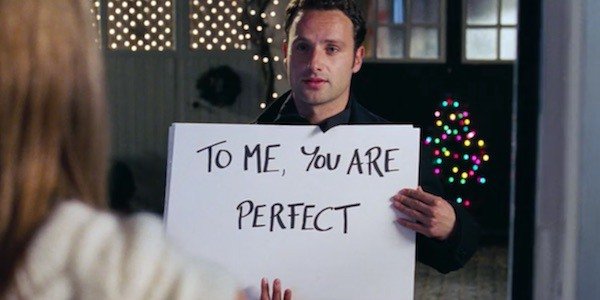
Love Actually is beloved by many people as both a romantic movie and a classic holiday film. But this holiday movie has many problematic elements to unwrap. It’s been accused of casual racism in its depiction of working-class immigrant families (Colin Firth proposes to his former housekeeper, played by Lúcia Moniz, in clumsy Portugese).
It romanticizes stalking, with Mark (Andrew Lincoln) pining after his best friend’s fiancée Juliet (Keira Knightley). He reveals his love to her in a series of silent placards after she’s gotten married and seen a creepy video he filmed of her wedding, constantly zooming in on her face.
But the most persistently annoying thing in the movie is the repeated fat-shaming of Natalie, the crush of Hugh Grant’s Prime Minister. These scenes are more awkward to watch now than ever before.
Indiana Jones and the Temple of Doom (1984)
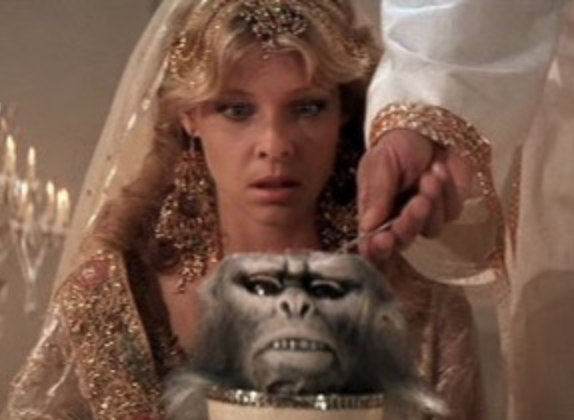
Ironically, Indiana Jones and the Temple of Doom has proven surprisingly problematic before. The ultra-violence of this heart-ripping, PG-rated movie, along with the cartoon violence of the PG-rated Gremlins, inspired the creation of the PG-13 rating by the MPAA.
Aside from the violence, though, the most bracing thing about this film is the stereotypical portrayal of natives as either savages or monsters. We are meant to laugh at how Indians eat “chilled monkey brains” and cheer as white savior Indiana Jones swoops in. Is it any wonder that the Indian government called this script offensive when it first came out?
The Wedding Crashers (2005)
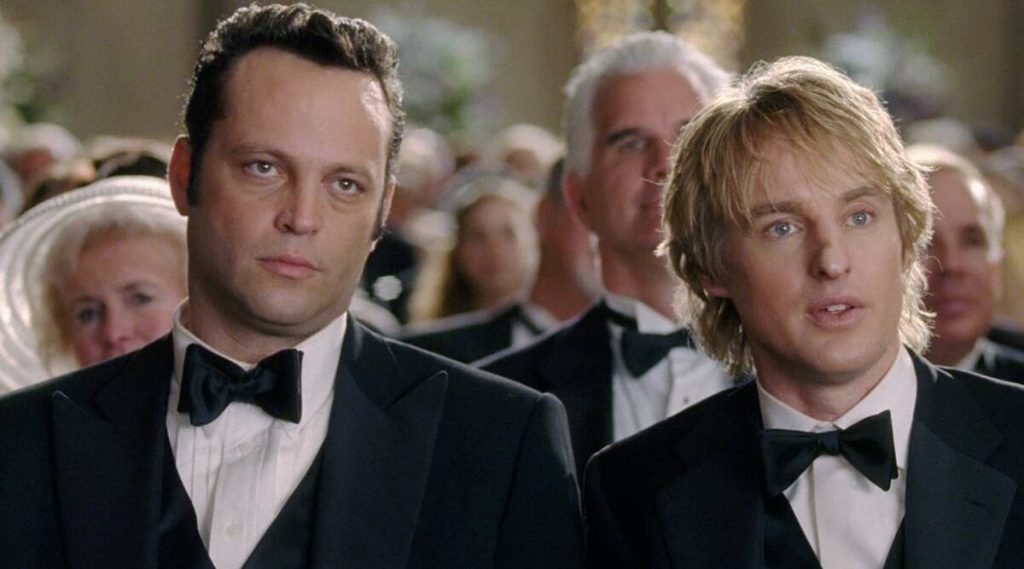
In many ways, The Wedding Crashers is an extension of Vince Vaughn’s personal brand. He is the dude we can come to for lighthearted movies about bad male behavior. But there is a pretty horrific scene in the middle of this movie!
The scene in question involves Vaughn’s girlfriend, played by Isla Fisher, tying him to a bed and forcing him to have sex. Basically, the movie wants a rape scene to be funny. Worst of all, the movie condones the act by having Vaughn’s character end up with her in the end.
Sixteen Candles (1984)
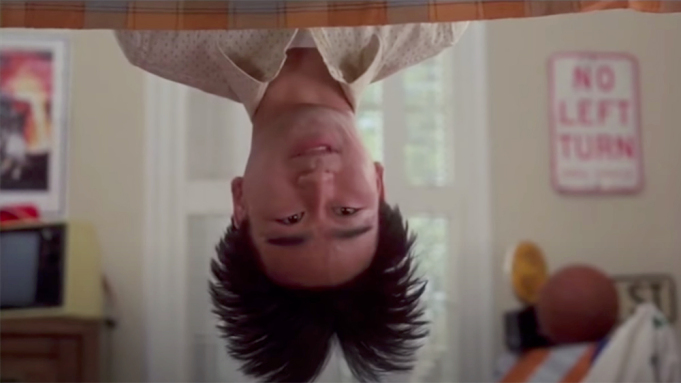
Sixteen Candles is an iconic coming-of-age tale centering around Molly Ringwald’s Sam and the crazy world she inhabits. But if you haven’t watched this movie for many years, what you find may be shocking.
The most offensive bit is pretty much any scene with Long Duk Dong, a character who is one big Asian stereotype, complete with an over-the-top Korean accent, played by Gedde Watanabe. But there are also cringeworthy scenes where characters casually talk about sexually assaulting a woman who has passed out. Oh, and hearing Ringwald let out an anti-gay slur near the beginning of this film is genuinely shocking.
True Lies (1994)
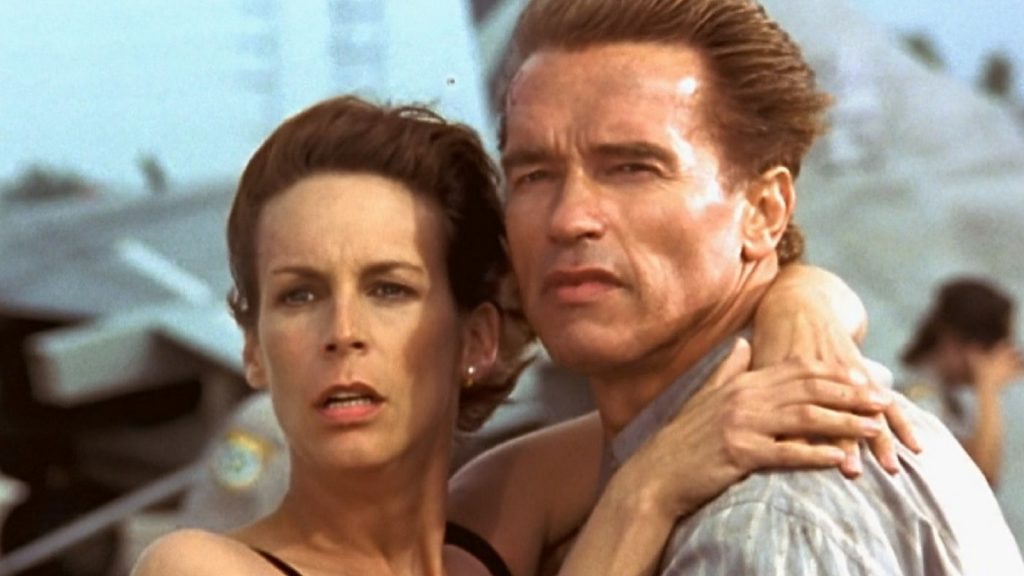
True Lies holds a rightful place as a classic of action cinema. And when it comes to showstopping action, it’s tough to beat having James Cameron as the director and Arnold Schwarzenegger as the star.
However, this is one of many movies from the 1990s that went out of its way to portray its Arab characters as terrorists and/or crazy fanatics. Needless to say, this Hollywood trend would get even worse in the next decade after 9/11.
Dumbo (1941)
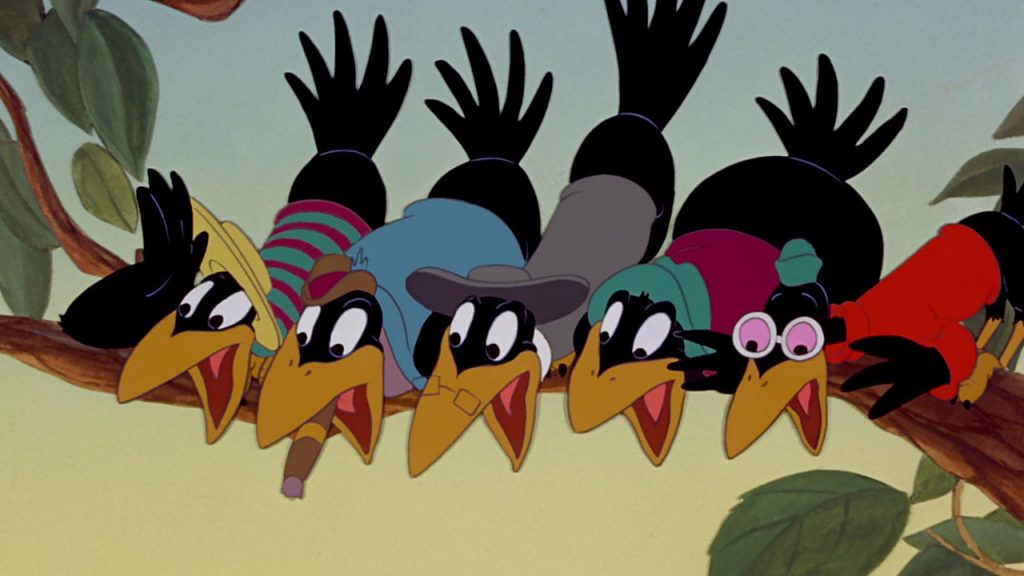
As a classic kid-friendly Disney cartoon, you might think Dumbo (1941) has very few problematic elements. In reality, this is the most problematic Disney movie this side of Song of the South!
Dumbo includes a song with incredibly racist lyrics called “Song of the Roustabouts,” about the black laborers who set up the circus. The crows in the movie are also racist caricatures with a very unfortunate group name: The Jim Crows.
She’s All That (1999)
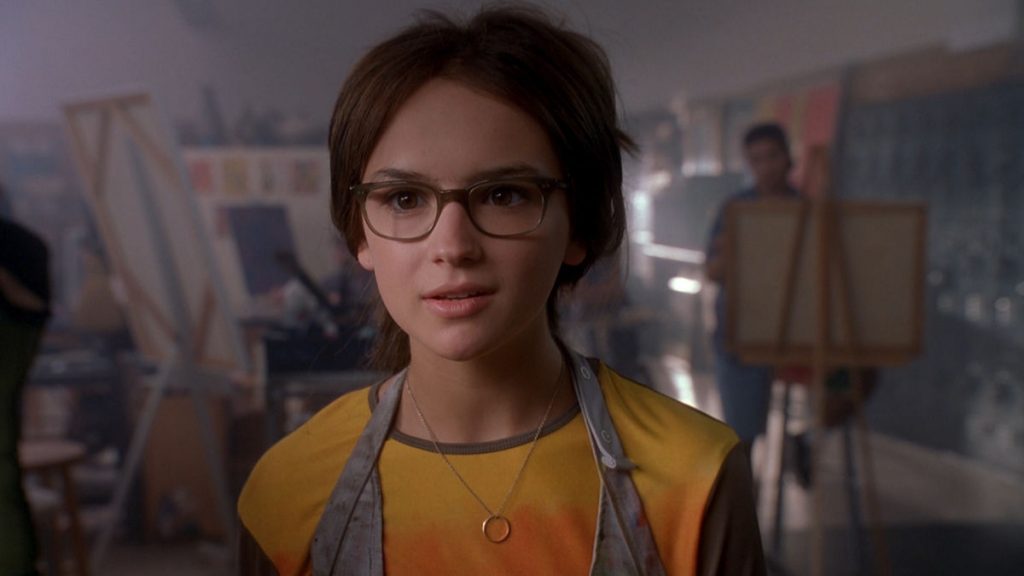
She’s All That defined both a generation of young fans and a generation of Hollywood romantic movies. Unfortunately, this film probably sabotaged quite a few real-life relationships.
That is because this film basically invented the trope that the individualistic, quirky girl needs to give herself a sexy makeover to get the man of her dreams. Maybe — just maybe — she should hold out for a man who is attracted to who she is already, quirks and all?
The Silence of the Lambs (1991)
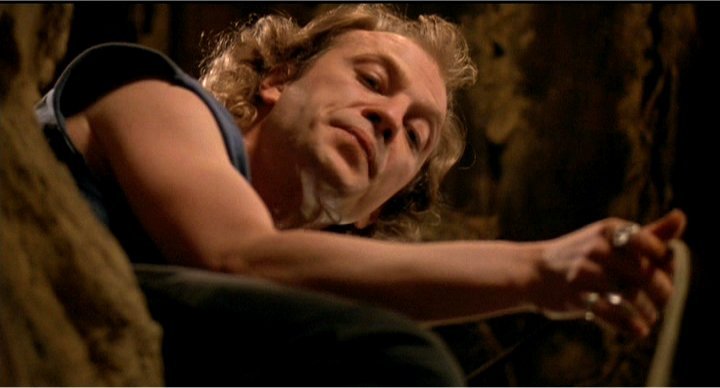
The Silence of the Lambs has been accused of transphobia for its depiction of serial killer Buffalo Bill, who targets women so he can make a “woman suit” out of their skin. While the script mentions that Bill is not actually a trans character, most audiences gloss over that, and positive portrayals of trans characters have been sorely underrepresented in the 30 years since the film was released.
Revenge of the Nerds (1984)
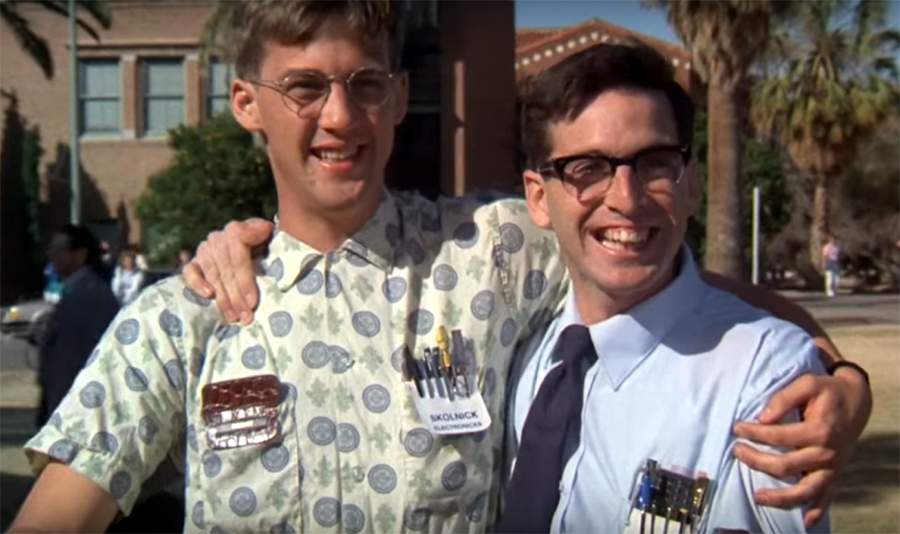
Revenge of the Nerds has its premise right there in the title: it’s all about the titular nerds getting back at a world that disrespects them. Unfortunately, the way they go about this is horrifically problematic.
For one thing, any given “revenge” antic involves assaulting someone or trying to kill them. That would be bad enough, but there is also a scene where a nerd wears a mask and has sex with a woman who thinks he is someone else. Hey, filmmakers, there is a word for that, and the word is “rape.” Worst of all, she ends up marrying him in one of the film’s sequels.
American Beauty (1999)
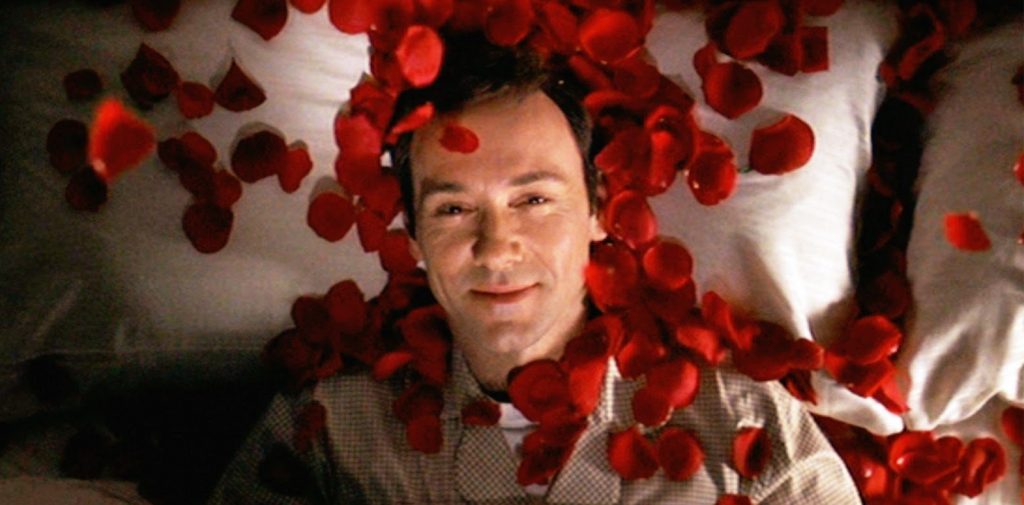
American Beauty was massively acclaimed in its day, winning five Oscars including Best Picture. And it has a lot of things to say about love, ambition, and the depression of getting older each year.
Unfortunately, one of the centerpiece plot elements is Kevin Spacey lusting after his teenage daughter’s best friend, played by Mena Suvari. While this would be gross and weird for any actor, the real-life allegations about Spacey grooming underage people takes the creep factor up to “11.” And it’s certainly problematic that Thora Birch’s parents let her do a nude scene in the film, despite the fact she was underage.
Once Upon A Time In Hollywood (2019)
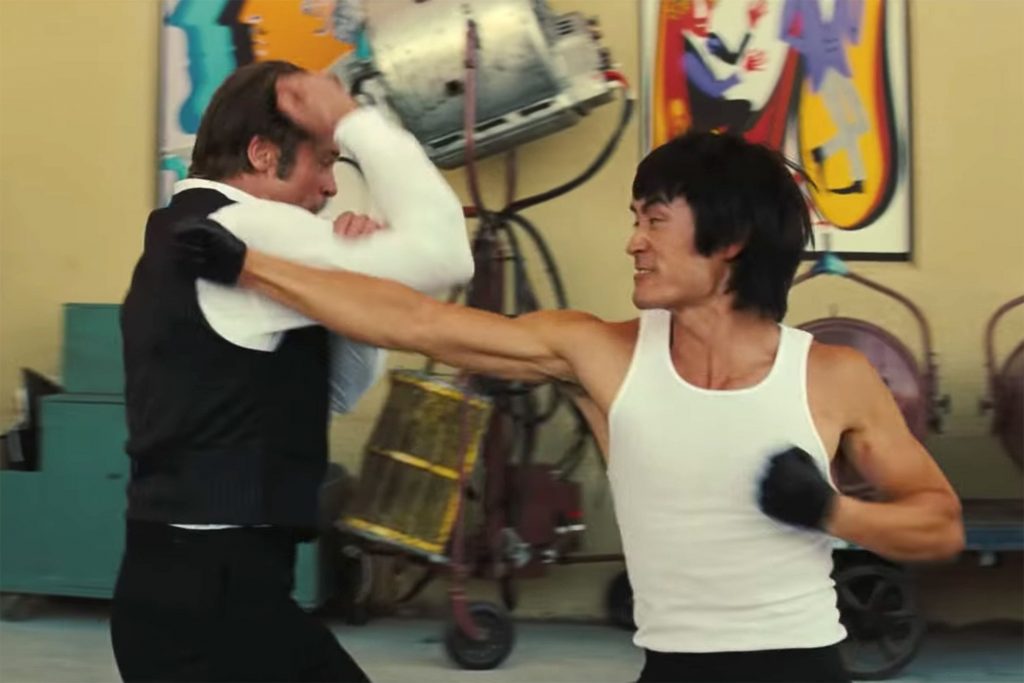
Once Upon A Time In Hollywood is the newest movie on this list. But when Quentin Tarantino is writing and directing, you can usually expect some weirdly offensive stuff, even in a movie widely considered a classic love letter to the Golden Age of Hollywood.
The offensive material mostly comes from problematic racial portrayals, including referring to Hispanic characters in an offensive manner and reducing them to roles such as waitresses and valets. There are basically no Black characters at all, which is pretty embarrassing. And the movie lampoons Bruce Lee, which arguably diminishes his contributions to Hollywood as one of the first prominent Asian stars.
The Breakfast Club (1985)
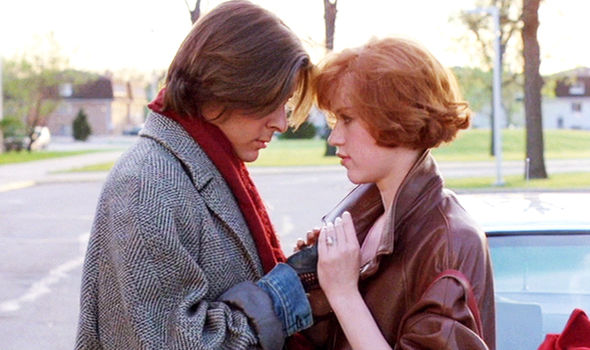
The Breakfast Club is another iconic John Hughes movie, and it recreates the high school experience by breaking its characters down into youthful archetypes. And part of the movie’s feel-good message is that vastly different characters can find common ground and even happiness with each other.
What doesn’t feel so good is the character of Bender, played by Judd Nelson. A would-be “funny” scene involves him jamming his head into the crotch of an unsuspecting Claire, played by Molly Ringwald. By the end of the movie, Claire is making her own passes at Bender and the characters share a kiss. Once again, a classic movie normalizes sexual assault and expects us to cheer for the later redemption of the man doing the assaulting!
Pulp Fiction (1994)
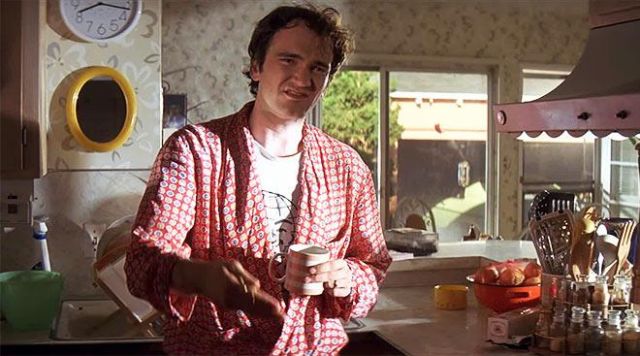
While Reservoir Dogs was a critical darling, it was Pulp Fiction that turned Quentin Tarantino into a household name. There are many offensive elements in this movie, but the most problematic bit comes from Tarantino’s extended cameo as a character in the film who can’t stop saying the N-word. As gifted a director as Tarantino is, we can’t help but wonder why he would go out of his way to put himself into his own movie and transform his character into a horrific racist.
Forrest Gump (1994)
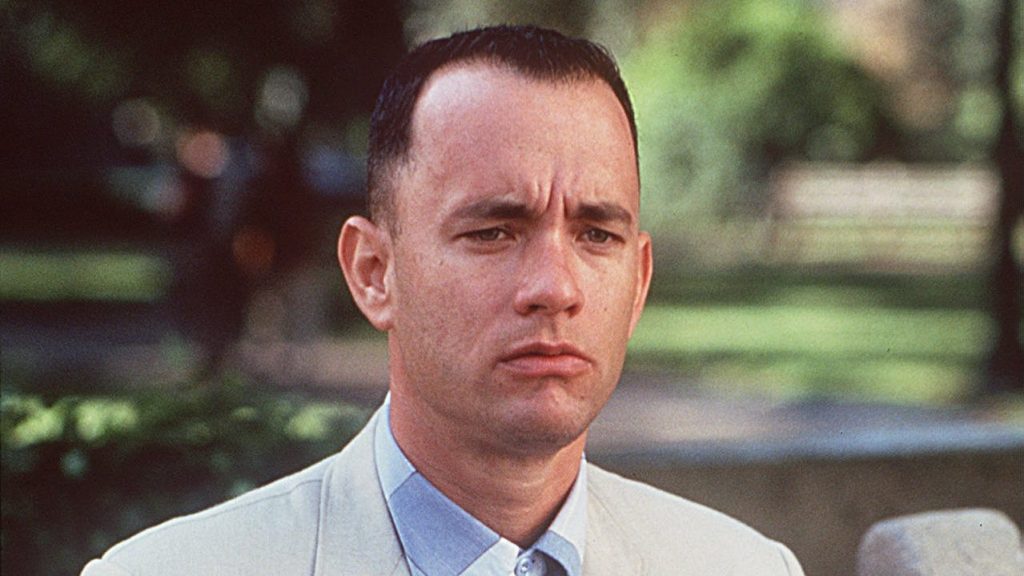
Some of the bracing elements in Forrest Gump, including Jenny getting AIDs, give the movie a grounding sense of realism. However, some of the portrayals of Lieutenant Dan dip into some unfortunate stereotypes of Vietnam veterans, and negative portrayals of protesters and hippies mean the movie is dismissive to an entire generation of progressives.
Oh, and the fact that Forrest Gump himself was named after the first grand wizard of the KKK, and that the grand wizard was the grandfather of Forrest, is more uncomfortable than ever in a post #BlackLivesMatter world.
Grease (1978)
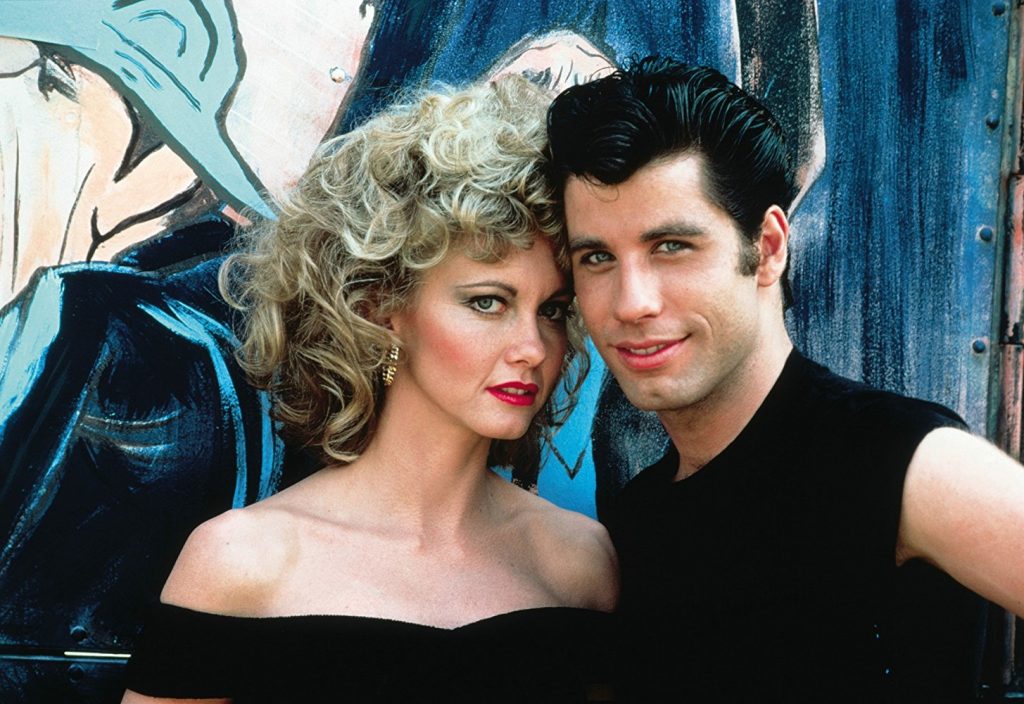
Grease is held up as a legendary musical and iconic tale of epic romance. In reality, it helped to normalize the unfortunate movie trope that women need to make major changes to their appearance and personality just to appeal to a man who is himself unwilling to change.
Of course, that pales in comparison to the “did she put up a fight” song lyric in “Summer Nights” that goes out of its way to normalize rape culture!

cute